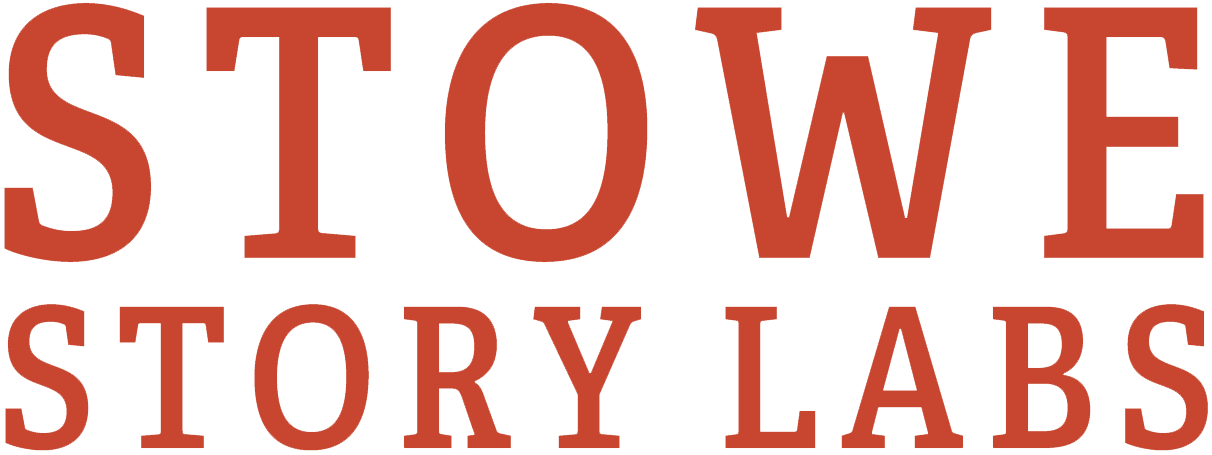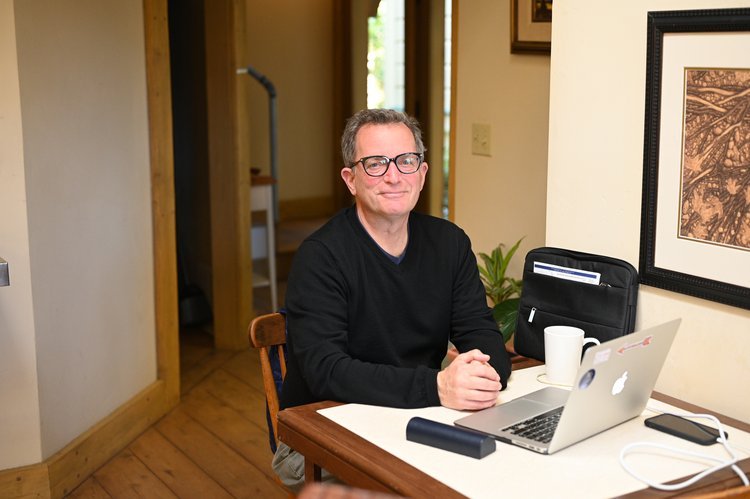THE LAMBING
In-Conversation Interview with Jillian Corsie by David Rocchio
Jillian Corsie has participated in both our Feature Campus and Stowe Writers’ Retreat. After working with us at the 2024 Retreat in Stowe, Jillian pitched her project THE LAMBING at the Cordillera Film Festival and won a $75,000 development deal.
Read below to learn more about Jillian, her project, and the influence of Stowe along the way.
DR: You pitched The Lambing at the Cordillera Film Festival and won a $75,000 development deal. Congratulations! Not to make you pitch it again, but what is the project about?
JC: Thank you so much! Winning the development deal was such an incredible surprise, and I’m absolutely over the moon about it. The Lambing is a feature-length coming-of-age horror film about an American teenager who spends one last summer with her dying grandmother in a small Scottish sheep-farming town. As she navigates her grief, she realizes something is off with the residents—and uncovers a dark secret. In the end, she’s faced with an impossible choice: will she sacrifice herself to save the town, or sacrifice the town to save herself?
At its core, it’s a story about anticipatory grief. As a dual Scottish-American citizen, this project is deeply personal to me. My parents still own my grandmother’s house in Scotland, but they plan to sell it in the next five years. This felt like my chance to honor her and memorialize this small town that means so much to me. I’m also at a point in life where my parents are aging, and it feels like everything is changing faster than I can hold onto it. That’s what the film is really about: the inevitability of change and how we confront it, even when it’s painful.
DR: Good pitch! I want to see it. And speaking of pitching, what was the experience of pitching like?
JC: Pitching was such a wild experience! One thing I know about myself is that if I try to memorize something—if I have to "perform"—I’ll just freeze up. It’s why I’m not an actor. I get too nervous, and it all falls apart. So, this might sound crazy, but I didn’t prepare in the traditional sense. I went into it thinking, I’m not going to win, but this will be great practice.
For me, anytime I push myself outside my comfort zone, it’s an opportunity to grow. Plus, you never know who might hear your idea and what doors it could open. So, I didn’t rehearse or even write my pitch down. I had three minutes to cold pitch to the panel, and I figured, I know my story better than anyone. I’ll just tell them about it.
Of course, I was nervous—I could feel my knees shaking as I stood there—but I focused on staying confident and sharing my passion for the project. Needless to say, I wasn’t expecting to win.
DR: Did the time at the September Retreat help support you in the preparation process, and if so how?
JC: The Stowe retreat was a huge help in preparing for the pitch. It happened just a week and a half before Cordillera, and during that time, I was essentially pitching my film every single day. Meeting 30 new writers meant I was constantly talking about The Lambing and refining how I described it. I got a good sense of what aspects of the story resonated most with people and what grabbed their attention.
There were also writers at the retreat who had recently been to the Sidewalk Narrative Lab, where they’d learned about pitching. They gave me valuable feedback on how to frame my story and make it compelling. I even remember one writer telling me, “Wow, that was a perfect pitch,” after I shared my project with him. That encouragement and practice gave me a real confidence boost going into Cordillera.
DR: What are the next steps for the project and how are you navigating this new phase?
JC: The most important step right now is getting the script into a great place! I’m a big believer in the idea of those 10,000 hours, and while I’ve been working tirelessly on this script, I’m realistic—I don’t expect to write something incredible on my first try.
Recently, I brought in some talented writer friends to help me restructure and tackle a few story issues I’d been wrestling with. With their help, I’ve just finished a new draft, and I’ll keep working with them until the script is really solid. Once I feel it’s in the right place, I’ll pass it to my producer, who will provide feedback and help refine it further, especially with an eye on budget considerations.
From there, if we’re all aligned and feel confident in the script, we’ll move into soft casting and development. But for now, my energy is fully focused on nailing the story and getting the script where it needs to be.
DR: You have joined us at both our Feature Campus program and Stowe Writers' Retreat. Will you tell us a little bit about your experience in both programs and how they've helped your screenwriting journey?
JC: It’s a little embarrassing to admit, but before last year, I had never even read a feature script! I knew I needed guidance to tackle my first-ever feature, and Feature Campus felt like the perfect place to start and learn the basics. I’ve always had plenty of drive, and as a documentary editor, I know how to shape a story—but narrative writing is a whole different ball game.
I was incredibly lucky to have David Pope as the instructor at Feature Campus. My film is set in the UK, and his familiarity with the vernacular and cultural nuances of that setting made his feedback especially valuable. After working through a few drafts, I realized I needed more focused, in-depth help, and I’d heard great things about the Stowe retreat from friends who had attended in previous years.
At Stowe, the conversations with mentors were incredibly inspiring, but what stood out most were the small group sessions. My script is definitely a little weird—it’s not going to appeal to everyone—but being in a group of writers who understood it and could riff on ideas with me was a game-changer. Having that level of support and collaboration was so helpful in moving my project forward.
DR: What else are you working on?
Corsie won the Jury Award for Best Documentary at the Austin Film Festival with Desert Angel
JC: Right now, I’m on the festival circuit with Desert Angel, a feature documentary I edited and produced. We just won the Jury Award for Best Documentary at the Austin Film Festival, which was such a surprise! We already have some exciting festival appearances lined up for 2025, though I can’t share details just yet.
I’m also finishing up another feature documentary about the opera legend Simon Estes—we’re locking picture soon, and the goal is to release it on SVOD in 2025.
That said, my top priority is getting the script for The Lambing as strong as possible as we move into development. It’s such a personal project, and I’m fully focused on making it the best it can be.
Jillian Corsie
Jillian Corsie is an editor and filmmaker with a passion for character based narratives that resonate with audiences and draw them into the heart of the human experience. Specializing in editing feature documentaries, her recent project, Desert Angel, illuminates the human toll of migration across the US/Mexico border.
As a documentary filmmaker, Corsie is committed to creating stories with social impact. Her debut feature, Trichster, sheds light on trichotillomania, while Second Assault addresses the trauma of reporting sexual violence. These films serve as educational tools on college campuses and in police training programs.
Corsie's narrative debut, TOOTH, a horror short, premiered at Slamdance and screened at nearly 40 festivals, including Austin and Sitges. Actively involved in the film community as a programmer at Salute Your Shorts and Slamdance, Corsie is poised for her next creative endeavor in feature narrative filmmaking, merging her passion for horror with heartfelt storytelling.
Interview by David Rocchio, Stowe Founder & Director
David Rocchio is an attorney, writer, and Emmy-nominated filmmaker. David conceived and co-produced with James Rogan The Gun Shop, an Emmy-nominated one-hour documentary commissioned by the UK Channel 4’s Cutting Edge series, where it premiered prime time and was awarded top reviews. It then played worldwide. David’s award-winning short films have played internationally, including the Cannes Short Film Corner and Italy’s Capalbio International Short Film Festival (Best of Capalbio). His most recent short film Gary, Jr. was produced and directed by Bertha Bay Sa Pan.
In addition to creating his own work, David founded and runs the nonprofit Stowe Story Labs, which is dedicated to helping top emerging screenwriters and filmmakers get work made and seen. Now in its twelfth year, Stowe works with approximately 200 emerging talents annually at labs, retreats, workshops, advanced development programs, mentoring programs, and film production programs.
David’s last job as a lawyer was as Legal Counsel to Vermont’s then-Governor Howard Dean. He was a nationally certified EMT and member of the Mt. Mansfield Ski Patrol (Stowe, Vermont) for 22 years, and he remains an avid backcountry skier. David lives in Stowe.




